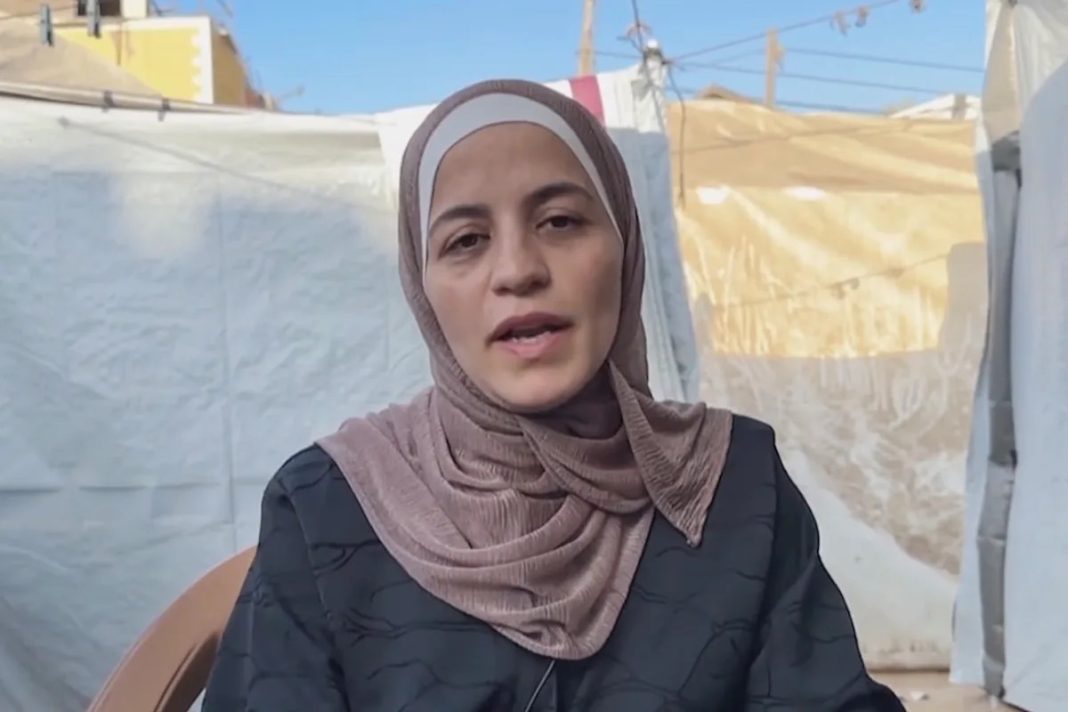Palestinian Rasha Abu Sbeaka narrowly survived two years of Israel’s genocidal war on Gaza, making it through four bombings and twice having to be pulled from rubble after an attack.
But tragically, even after the ceasefire, the war and its aftermath may yet kill her.
Abu Sbeaka developed stage 3 breast cancer during the conflict, and Israel’s destruction of Gaza’s medical sector, combined with its ongoing closure of crossings out of the enclave that could allow her to receive treatment abroad, means she is unable to access the care she urgently needs to survive.
Her situation has left her often feeling that she is “going to die”, Abu Sbeaka said. “I used to hug and kiss my children every day because I thought I was on my deathbed.”
Along with fellow Palestinian Mervat Sarhan, who was recently released after months in an Israeli prison where she said she endured beatings and electric shocks, Abu Sbeaka shared her story with Al Jazeera to describe the struggles Palestinians face in overcoming the damage inflicted by Israel’s war on Gaza even in the wake of the ceasefire.
“I want the world to know our story,” she said.
Palestinian cancer patient Rasha Abu Sbeaka says she is desperate to be evacuated from Gaza for treatment [Screengrab/Al Jazeera]
Everything ‘at a standstill’
Speaking to Al Jazeera in the Nuseirat refugee camp in central Gaza, Abu Sbeaka said her health had been badly affected by the war.
She believes her cancer was caused by emissions released during the constant bombing and rocket fire.
“I often struggle to breathe,” she said.
She said the war had left Gaza’s health system in ruins, meaning she has been unable to access the care she urgently requires.
“There is no medical treatment and no alternative treatments because of the war and the closed crossings,” she said. “Everything here is at a standstill.”
On top of the damage to her physical health, she said her predicament had taken a major toll on her mental wellbeing as she struggled to find a path to secure treatment and overcome the disease.
“My psychological health has been completely destroyed. I wasn’t like this before. I used to be a person who loved life,” she said.
Small numbers of patients in critical condition have been evacuated for medical treatment under the auspices of the World Health Organization (WHO). But the numbers being evacuated – including 41 on Thursday – are just a tiny fraction of the 15,000 patients requiring evacuation, including 3,800 children, the WHO said.
Israel continues to keep the Rafah border crossing between Gaza and Egypt closed despite the ceasefire stipulating that it would open for the movement of people. The WHO has called for all of Gaza’s border crossings to be opened for both the entry of aid and for medical evacuations, saying the evacuations would take a decade or so if they continue at the current rate.
Abu Sbeaka said she and her fellow cancer patients in Gaza were determined to beat the disease, “provided that they hurry up and open the crossings, so we can travel abroad and get the treatment we need to recover quickly”.

Rasha Abu Sbeaka reviews her pathology report [Screengrab/Al Jazeera]
Husband killed in front of children
In Khan Younis, Sarhan is fighting her own battle as she struggles to rebuild her shattered life after nearly five months in Israeli detention.
During her time in Israeli custody, she said she endured beatings, electric shocks and threats to kill her children during interrogations.
The ordeal for Sarhan, who was one of two Palestinian women released in the latest exchange under the ceasefire with Israel, began early one morning in May when Israeli special forces disguised as women stormed into the bedroom she shared with her husband.
“They ransacked the house and kept asking questions like ‘Where are you hiding them? Where are the captives?’” Sarhan told Al Jazeera.
She said they denied any knowledge about the captives before the Israeli soldiers killed her husband in front of their terrified children.
“Then they started grabbing my children one after the other. They kept smashing the furniture. They handcuffed me and took me with them.”
She said the Israeli forces took her along with her 13-year-old son, leaving the younger children behind “with their dead father lying on the floor”.
Beatings, electric shocks
Sarhan said she was then subjected to a military interrogation during which she was beaten and shocked as Israeli officers questioned her about her husband’s contacts.
She was told her son would be released, but she was sent to Ashkelon prison in Israel and held for a month “in a dark solitary cell not fit for humans”.
During this time, she was subjected to daily interrogations.
“They even threatened to kill my children, to imprison me for life and told me I would not see my children again,” she said.
Sarhan is now focused on rebuilding her life without her husband after her release along with other Palestinian prisoners.
Many of the released Palestinians showed signs of torture and abuse. Among those whose bodies were returned, some appeared to have been blindfolded and executed by Israeli forces. Rights groups said there have been reports of torture in Israeli prisons for years.

